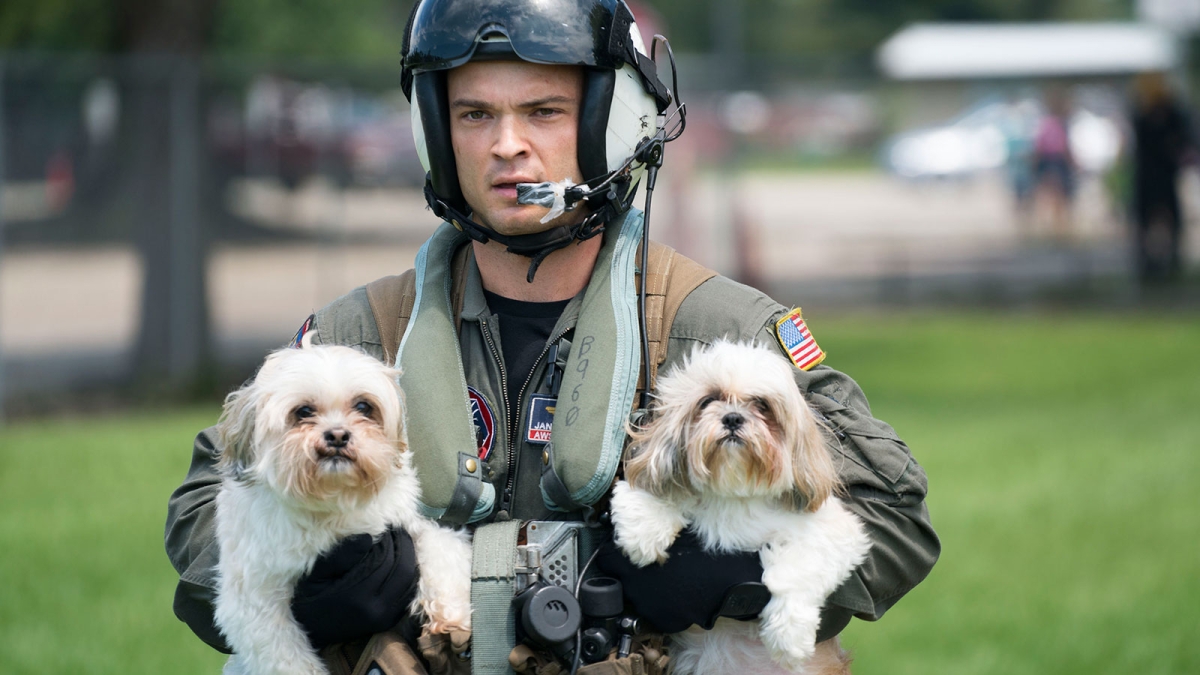Hurricanes Harvey and Irma have displaced scores of humans, many of whom have equally frightened pets. Although pets experience life differently than humans, there are things we have in common, like family or pack bonds, and some things we don’t (hugging). It’s good to take note of the similarities and differences, says Clive Wynne, an Arizona State University professor of psychology who is a dog-behavior scientist.
Wynne talks about how pets perceive disasters like Harvey and Irma, what they seek as comfort and how to go about adopting a pet from a shelter.
Question: From the rescues, the pets being taken in looked stressed and scared, even when sitting in the arms of their owners. Why is that?
Answer: Just like us, our pets are stressed by frightening events, not just by being separated from loved ones. All of the strange sights and sounds of a major disaster — big bangs, things being shifted around, strange smells, water where it shouldn’t be and so on — all of these stress our pets just as much as they stress us. Probably more, because it is well-nigh impossible to explain to a dog or cat what is happening, that it is over now and they don’t need to continue in high alert.
It may be tempting to hug a dog or cat tightly when you are distressed, especially if you have become separated. But not all animals enjoy being hugged. Very tight hugging may cause an animal to panic. We are different species, and we have different ways of expressing ourselves.
Q: How do pets react to such dramatic events?
A: Different pets are stressed by different things and are going to react in diverse ways. Dogs may be more concerned at losing contact with a beloved owner; cats may be more afraid of water. At their most extreme, we see trembling and even uncontrolled toilet functions; milder cases involve heightened alertness with less sleep and possibly reduced appetite.
Q: What can be done to make them feel safe?
A: Safety equals familiarity. As soon as possible, help pets feel safe by restoring their familiar world. This includes the social world, where reunion with beloved family members is very important, but also the physical world. If it is possible in a different place to have some of the objects of the home world, like familiar toys, customary food bowls and so on, that will help.
Q: If you are looking for a potential pet in the shelter, how do you know this pet is for you?
A: Give yourself the time and space to get to know a prospective new animal member of your family. In our research, we found that people play with a prospective new dog for just eight minutes, on average, before making their adoption decision. It doesn’t need to be so rushed. Many shelters will allow people to take a new animal home for a night or two. These sleepovers are a great way to see if you really get along.
Also, give a new dog or cat time to come to you. Some well-meaning people crowd in on a new animal, and that can be stressful for the dog or cat surrounded by unfamiliar humans in a novel environment.
Top photo: Naval Aircrewman (Helicopter) 2nd Class Jansen Schamp, from Denver, assigned to the Dragon Whales of Helicopter Sea Combat Squadron (HSC) 28, rescues two dogs Aug. 31 at Pine Forrest Elementary School, a shelter in Vidor, Texas, that required evacuation after floodwaters from Hurricane Harvey reached its grounds. Photo by Mass Communication Specialist 1st Class Christopher Lindahl/U.S. Navy
More Science and technology

Diagnosing data corruption
You are in your doctor’s office for your annual physical and you notice the change. This year, your doctor no longer has your health history in five-inch stack of paperwork fastened together with…
Large-scale study reveals true impact of ASU VR lab on science education
Students at Arizona State University love the Dreamscape Learn virtual reality biology experiences, and the intense engagement it creates is leading to higher grades and more persistence for biology…

ASU-led space telescope is ready to fly
The Star Planet Activity Research CubeSat, or SPARCS, a small space telescope that will monitor the flares and sunspot activity of low-mass stars, has now passed its pre-shipment review by NASA.…


